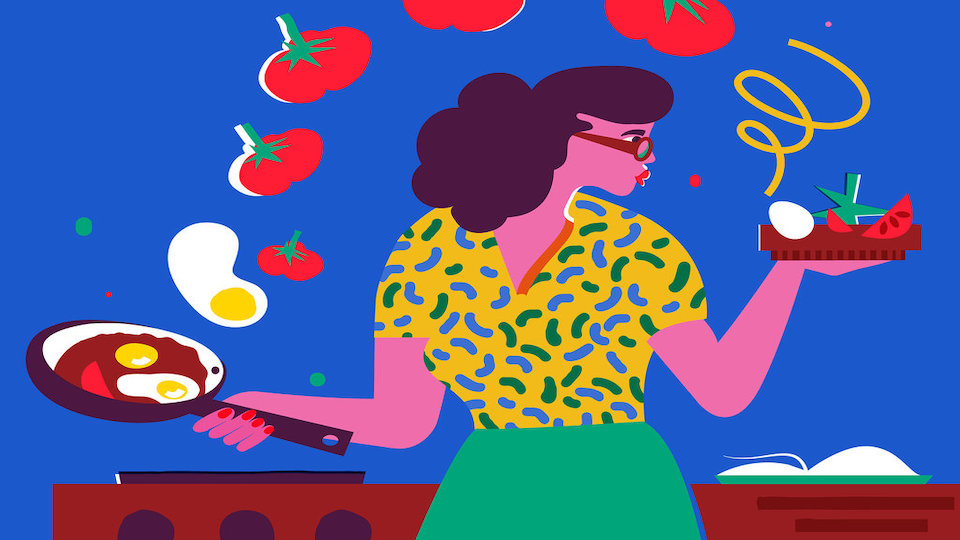AI in the Kitchen: Opportunity and Threats for a More Balanced Diet – Pietro Paganini
The integration of artificial intelligence (AI) platforms and IoT tools offers extraordinary opportunities for making informed decisions about diet and lifestyle. With complex parameters and real-time information, we can personalize our nutrition. However, it is crucial to maintain a critical mindset when using AI to preserve conscious choices free from external ideological and commercial influences.
AI in the Kitchen: Opportunity and Threats for a More Balanced Diet
WHAT’S HAPPENING? AI platforms will have an increasingly significant role in our lives, helping us make informed decisions to improve our diet and lifestyle. It’s a triumph of diversity because we will finally be able to personalize our diet. This will be made possible by integrating these platforms with IoT tools that collect real-time data about our physical and mental state.
WHY IT’S IMPORTANT AI will assist us in anticipating and meeting our physical and psychological needs, reducing potential risks associated with them.
- Furthermore, it will encourage us to make more rational and considerate decisions.
- However, if AI is not regulated correctly, it could become a dangerous tool that limits our freedom of choice and controls our actions.
Read it again: Uniting Against Obesity >>>
PERSONALIZED DIET AI enables us to recognize each individual’s deepest diversities to better personalize our decisions regarding diet (personalized diet) and lifestyle. Such diversities are a wealth that we have ignored so far in favor of more universal approaches (one size fits all) or simply due to a lack of adequate tools that we haven’t been able to grasp.
HOW OUR CHOICES CHANGE In the morning, based on our routine and planned activities for the day, considering factors like weekends or a business trip, we will decide what to eat for breakfast, taking into account our sleep and physical and emotional state.
- An application equipped with a complex algorithm, considering numerous elements such as our vital parameters (physical and psychological), the surrounding environment, and the activities to be carried out, will suggest the calories and nutritional composition to consume.
- We won’t worry if the nutrients are unavailable in the pantry or fridge since they can be delivered as soon as we get out of bed.
- The application will be able to know what we have at our disposal, what is about to expire, or what is missing, and act accordingly by making necessary orders.
READ IT AGAIN: INTRODUCING THE LIFESCORE >>>
THE MACHINE EVOLVES BY LEARNING This process will repeat throughout the day, whether it’s for lunch or dinner, regardless of our location. The artificial intelligence application will continue to gather information and learn from our behavior. It evolves.
- Finally, we will be able to personalize our diet and lifestyle based on a wide range of parameters that we didn’t have access to before.
- Our choices will be conscious, rational, and based on greater knowledge, making them free choices.
DEGENERATION However, there is another scenario that entails various risks.
- What we are suggested to eat, including calories and nutrients, can be influenced by factors external to our lifestyle.
- The consumption of certain foods or ingredients can be manipulated by public policies, industrial policies, or simply commercial decisions made by private entities, such as supermarkets that provide food products.
- If we don’t actively participate —consciously— in the decision-making process, for which AI is a tool, we risk degeneration, and over time, we will lose synapses and neurons.
EUDR CHALLENGES: READ IT AGAIN ON THE JAKARTA POST >>>
FOR EXAMPLE… The algorithm might suggest that we eat a certain fruit in the morning because it’s good for us and conveniently available at the nearest store. It will proceed with the purchase, and we can enjoy it as soon as we wake up. But it could happen that other factors, not considered by us, could interfere with the final choice. For instance, that imported fruit may create discomfort in our local supply chains or come from an unfriendly country, or its excessive demand may result in a poor life cycle assessment (LCA). Or the distribution chain may have an interest in selling us something else. In this case, who makes the choice: us
- In this case, who makes the choice: us with the support of the machine or external factors through our application?
HAVE YOU MISSED IT? READ IT AGAIN: IFOOD THE PERILS OF FOOD STANDARDISATION >>>
THE CRITICAL SENSE It is evident that it is essential to maintain a critical sense when using artificial intelligence and ensure that dietary choices are based on personal evaluations and not solely on predefined external factors. The ultimate goal of artificial intelligence in improving our diet and lifestyle is to enable us to make conscious decisions based on our uniqueness and individual goals.
READ IT AGAIN: THE TROUBLES WITH THE ANTHROPOCENTRIC IDEOLOGY >>>
THE RULES We must be vigilant in ensuring that the choices proposed by AI align with our individual needs and desires, without being overly influenced by external factors. With proper regulation and awareness, artificial intelligence can become a valuable support tool for a more conscious individual and collective well-being.

